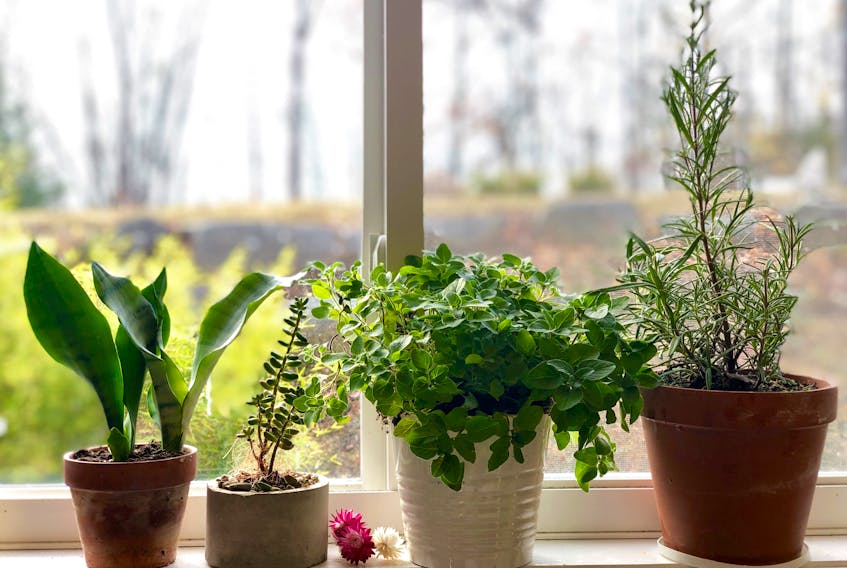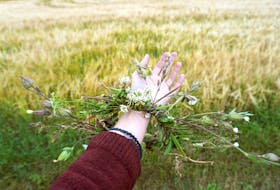One of the easiest ways to add flavour to food is with herbs like parsley, thyme, and basil. And while many of us grow fresh herbs in containers or garden beds in summer, come autumn we switch back to using dried herbs in our cooking.
Why? Many herbs, particularly those from Mediterranean climates don’t thrive when grown indoors in winter. They want more light than our short winter day-length provides. Plus, they aren’t crazy about the dry conditions inside our homes. This is why the basil or rosemary plants you place on a windowsill may slowly decline as the weeks pass.
That said, there are certain ways to get around these challenges. First, look at your light. Site potted herbs on a south-facing window that receives at least eight hours of sunshine each day. If you don’t have a south-facing window you’ll need to use a grow light. You can buy fancy fixtures to grow herbs, vegetables and micro-greens indoors, but you can also use use a standard fluorescent light fixture or a simple and inexpensive incandescent light bulb.
It also pays to water smart by watering when the soil is dry, not on a schedule. Because most herbs want well-drained soil, choose pots that have drainage holes.
When potting up herbs, use a high-quality potting mix. I also like to top-dress each pot with a thin layer of worm castings, which gives plants a boost and promotes healthy growth.
Finding herb plants in autumn can be a challenge, but many local farmers markets, grocery stores, and even year-round nurseries stock fresh herb seedlings. Grow the herbs you like to eat. Foodies may want culinary favourites like basil, Italian parsley, and Greek oregano.
Herbal tea lovers can plant lemon balm, lemon verbena, and mint.
Five herbs to grow indoors:
1. Parsley
Both curly and Italian parsley can be grown indoors in pots, but I find curly does better on a windowsill. Italian parsley wants to grow big, but too big for most inside spaces. Unlike many herbs, parsley has medium-high moisture needs and likes a consistent supply of water. Keep an eye on the soil, watering when it’s dry to the touch. Parsley also can take less light, so if you don’t have a bright, south-facing window, parsley may be the best option for you.
2. Rosemary
Years ago I struggled to grow rosemary indoors with the plants either quickly dying or falling victim to a spider mite infestation. Now I know where I went wrong: I didn’t place my rosemary in a south-facing window and I over watered. Today, my winter rosemary plants are on my kitchen window which receives direct light for most of the day and I only water every week or two, when the soil is dry. I also mist the plants every few days which reduces the occurrence of pests like spider mites while providing modest moisture.
3. Basil
Basil is king among culinary herbs, prized for its unique clove-like flavour that is so good in pasta and on pizza. And while basil is generally considered easy-to-grow, it does need plenty of light. This is where a grow light comes in handy, adding a few more hours of daily light for the plants.
4. Greek oregano
Greek oregano is one of the easier herbs to grow indoors with the plants producing a lovely mound of small, grey-green leaves. Sprinkle the chopped leaves on pizza and roasted vegetables, as well as in salad dressings and stews. It’s quite drought tolerant in the garden and when grown inside also has low water needs.
5. Lemon Balm
A mint cousin, lemon balm has an intense lemon scent and flavour that makes a wonderful tea. The plants want ample light and regular moisture, but are generally undemanding.








